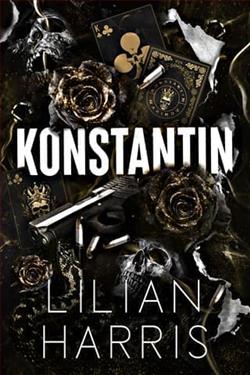Page 77 of The Lovers
“They must be popular with the girls,” Quinn observed as she studied her half brothers.
“Oh, aye, they are, except Logan doesn’t go in for girls. He’s quite the player though—nothing like his dad, who never even had a girlfriend before he met me. He’s been with the same bloke for a few years now. I hope it’ll last. And Jude is artistic and sensitive. And single, as far as I know.”
“I’d like to meet them,” Quinn blurted out. She hadn’t intended to, but seeing her brothers in the photographs loosened something in her heart. They were her flesh and blood, her siblings. Would they find common ground?
“Of course. You can meet Logan anytime, and with Jude, we’ll arrange something.”
Quinn returned the photographs to Sylvia. She felt a little more comfortable about spending time with her, and the anger of an hour before had faded but was still there at the back of her mind, gnawing at her. She’d found half of what she’d been searching for, but there were still questions she needed to ask.
“Sylvia, Rhys Morgan is not my father.”
“How do you know? He has a one-in-three chance, just like the other two.”
“I had a paternity test done. It came back negative.”
Sylvia stared at her, shocked. “Does he know? Have you told him, then?”
“No. I just helped myself to some hair from his comb when he wasn’t looking,” Quinn explained, smiling guiltily.
Sylvia frowned, obviously coming to the wrong conclusion. “Are you involved with him?”
“Not in the way you think. There is someone special in my life, but it’s not Rhys.”
“Good. I’m glad. I want to see you happy.”
“Sylvia, I’d like to know something of the other two men. I need to know who my father was.”
Sylvia looked distressed but nodded. “I understand your desire to know, but I wish you’d leave it alone, Quinn. No good can come of it.”
“Are you now being psychic?” Quinn joked, making Sylvia smile.
“I suppose I am. I’ll tell you whatever I can though.”
FIFTY-SEVEN
JULY 1665
Suffolk, England
Elise felt vastly relieved when Edward finally left for Salisbury. She tried to play the dutiful wife, but Edward’s words had cut her to the quick and left her feeling despondent and frustrated. She wasn’t foolish enough to believe that Edward married her for love—few people of his class did. But most couples, being put in a position where their lives depended on each other, at least attempted to have some sort of a relationship. Edward wanted nothing to do with her; he cared nothing for her or her feelings, but he held the key to her future and legally she was his property. She was a bird in a gilded cage, a prize to lock away in a silver coffer and admire on occasion. Edward made it clear enough that to him she was something less than human: a vessel and a means to an end.
Elise wasn’t precisely sure when she’d made the decision, but by the time James returned from London, she knew for sure. If her husband felt no obligation toward her, well, then she felt no obligation toward him. Perhaps this was a radical notion for a woman of her time, but she refused to allow a man to rob her of her chance of happiness. Edward might be her husband, and he owned her and her offspring, but he did not own her thoughts or her heart, nor did he own her loyalty.
Elise threw aside her sewing and rushed outside when she saw James canter into the front yard. James rode pillion behind a small, tired-looking girl whose head drooped like a flower as sheslept. James said something to her, and the child stiffened, her eyes flying open once she realized that they’d reached their destination. James dismounted and helped the child off the horse, setting her gently on the ground. She took his hand and looked about fearfully.
“James, you’re back,” Elise cried as she approached him, but James made no move to go to her. Instead, he held up his hand to keep her from coming any closer, his expression closed. “It’s all right, Lord Asher is gone,” Elise said.
James shook his head. “Don’t come any closer. We are both fine, but there is still a chance that we might take ill. I only came to tell you that I am back. I will stay at the gamekeeper’s cottage with Mercy until it’s certain that neither one of us has been infected.”
“And your sister?” Elise asked carefully, stealing a peek at the child, who pressed herself to James’s legs when her mother was mentioned, as if trying to make herself smaller.
“Molly and Peter are not ill, but Beth…”
“I understand,” Elise replied and turned her attention to the little girl. “Welcome, Mercy. I hope you had a pleasant journey.” Elise cringed at her inappropriate choice of words. There was nothing pleasant about fleeing a plague-ridden city, having left your family behind. Mercy was old enough to comprehend why her parents sent her away. Children grew up fast, especially when sudden death was all around them. Mercy might never see her parents or sister again, nor was it guaranteed that she wouldn’t begin to display symptoms herself, having been exposed to the sickness.
“Thank ye, me lady,” Mercy replied, her thin voice barely audible. “It was most pleasant. Uncle James took good care of me. He promised me mam.” At this, Mercy nearly began to cry, butJames put a reassuring hand on her shoulder, and she got hold of herself.
“Well, I, for one, am very glad you are here, and I hope you will come to the house and visit me once Uncle James deems it safe.”















